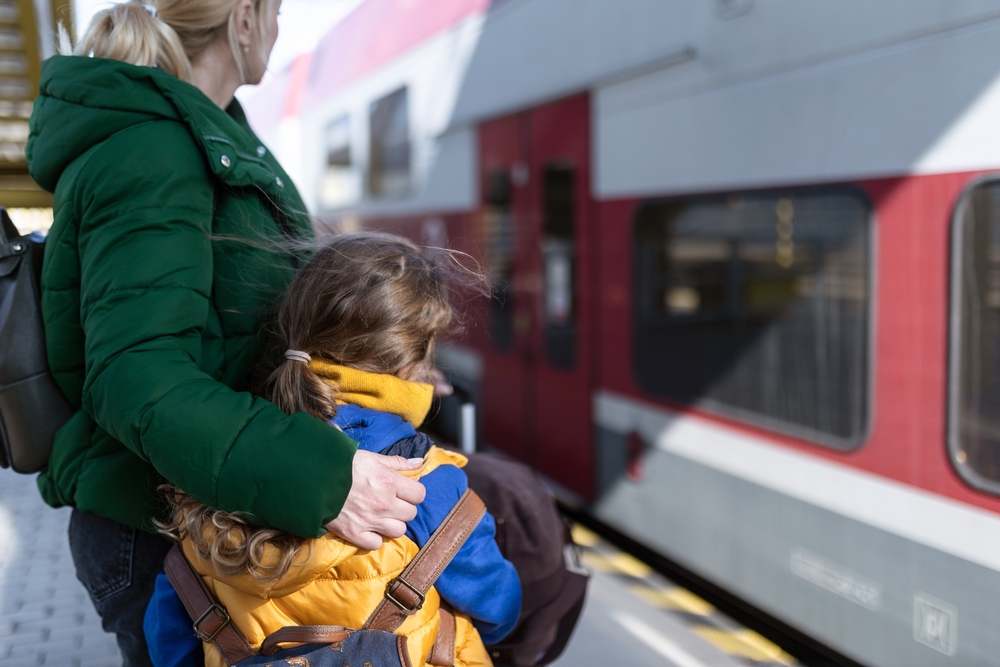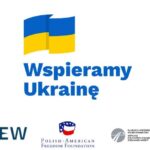How Russia’s war estranged us, probably forever
Differences of views on Russia’s invasion of Ukraine have not only split two nations, but also many families as well. The stories of Sasha and Daniil offer just two examples of how families have been split by toxic propaganda and war, with little chance for reconciliation.
When Russia invaded Ukraine on February 24th, it brought much more than political and ideological discord. For thousands of Ukrainians, who had family connections in Russia, it was a turning point. The ground of common understanding that had been eroding since the occupation of Crimea and parts of Donbas in 2014, completely cracked in one night, when Russian forces crossed the Ukrainian border in an attempt to take Kyiv. What had been thought of as western exaggeration prior to February 24th, became real, and the wall of misunderstanding split many friendships and family connections; some of them forever broken.
October 3, 2022 -
Iryna Matviyishyn
-
Issue 5 2022MagazineStories and ideas

Photo: Halfpoint / Shutterstock
According to the study “100 days. Ukrainians and War”, more than 47 per cent of Ukrainians have friends or relatives in Russia. A third of them do not maintain any contact with Russians. Research by the Washington Post also shows that many stopped their conversations in the first two weeks of Russia’s war.
Growing radicalisation
Oleksandr (Sasha) Opanasiuk, a 29-year-old website developer, abandoned any communication with his father in Russia and tore his Russian passport up right after the invasion started. Having woken up to war and explosions in Kyiv, he told his parents that Russia had begun its attack. Those days of the invasion were so difficult, Sasha recalls, that he had no strength to talk about Ukraine with his family. “All I heard was “do not go out”.” He would spend his hours in the basement, but the fact that Sasha was in danger was not enough for his father to change his pro-Russian views. After two days of war, on February 26th, they stopped talking.
“I didn’t see any sense to continue,” Sasha explains with a bit of affliction in his voice. “You can say whatever you want but it does not break through.” In his last messages, he sent pictures of the destroyed educational institution in Zhytomyr oblast, where his father had studied. “It did not affect him at all,” he adds. “I thought it was weird; if you tell them what you see and they don’t trust you, it is not very pleasant.”
Born and raised in Novy Urengoy – a city in central northern Russia – Sasha recalls that he “always felt uncomfortable there”, with “parades on May 9th and all the pseudo-patriotism”. “All this seemed to be wrong to me.” In 2011, he left Russia. His Russian father, Ukrainian mother and brother stayed and the relationship with the family was still great. Everything changed with the Maidan Revolution in Kyiv, when the Kremlin’s propaganda ran amok and Russia decided to invade Crimea and Donbas.
“The male side of the family radicalised,” he explains. “They started to tell me that here [in Ukraine] we live the wrong way. It escalated every year, and then, it reached its peak.” Today, their rhetoric is similar to that of the Kremlin’s state propaganda – that Ukraine was bombing Donbas for eight years, that it is all America’s fault, and that Russia had to protect itself.
Unlike with his father and brother, Sasha still keeps in touch with his mother. Originally from Ukraine, he says that she had been there many times. She now understands that the reality “is far from what they’ve been told on the TV”.
Since all the discord between him and his relatives in Russia began, Sasha has been thinking about the roots of it all. He knew that his brother has not been watching a lot of state TV. Nonetheless, his views were reiterating another Putin narrative that “nothing is ambiguous, both parties are guilty”. At the same time, Sasha remembered well his last trip to Russia – the atmosphere was suffocating. “Propaganda is everywhere,” he explains. “You could just talk to a person and hear the same propaganda [that was broadcasted]. They share thoughts from the TV that they pass off as their own.”
Family battlefield
Sasha’s story is more an example than an exception. His words resonate with dozens of posts and comments that Ukrainians have left on social media about their broken ties with Russian contacts since the beginning of the full-scale war against their country, whatever their ethnicity or region.
Daniil Popkov, 29, originally from Donetsk oblast, blocked his father on all messenger apps after failed attempts to restore already weak communication with his family in Russia. Daniil’s father is ethnically Russian and has always identified himself as such. However, prior to the Maidan in 2013-14, Daniil recalls that there were no particularly political or historical discussions in the family. Things changed when Daniil switched to Ukrainian and made his pro-Ukrainian and pro-European views clear. It got worse with the seizure of Crimea and the occupation of Donbas. He lost his connections with cousins in Russia, too. Daniil says that when Russian troops went into Ukraine, his family did not text him a single word.
In 2016, his father moved from their hometown of Bakhmut, in eastern Ukraine, to Surgut in western Siberia. He did this not only for personal reasons but also his negative sentiments regarding the Ukrainian government. Since then, they had a deal to only talk about family business when needed. Their agreement did not last when Russia invaded again.
On the morning of February 24th, as Ukraine woke up to bombardments and missile strikes, Daniil was at home in Kyiv. He immediately sent a message to his father, asking, “What do you think about this?” The response Daniil received was very similar to the one Sasha heard from his father – that the war was necessary to protect Russia. “He told me that he does not like that the war started, but that it was “inevitable”, that is, he supports this Putin delusion.”
Daniil asked his father to return to Ukraine to “fight against Russia” together, but in response he received only the standard line about “Ukrainian Nazis”. “He repeated Russian propaganda that soon there will be a new government in Ukraine, we will all live normally, we will have cheap gasoline and there will be no Nazis in power.” After this, Daniil blocked his father.
If Kyiv was surrounded, his life would be in danger due to his civic activity. Daniil is a legal consultant for Vostok SOS, a charitable organisation that has been helping Ukrainians since the beginning of Russia’s war in 2014. He switched to speaking Ukrainian a few years ago and fits well into the Kremlin’s image of a “Nazi”. His father did not accuse him of that, “but maybe he thinks that I am deeply mistaken and was deceived by propaganda,” Daniil adds.
When the full-scale war began, Daniil was forced to evacuate to Western Ukraine. His mother and her partner did the same, as Bakhmut soon became a battlefield. Relations with his other relatives are not easy either. Daniil’s aunt and grandmother are living in Russian-occupied Crimea, where they had bought property years earlier. They are pro-Russian, however Daniil still keeps in touch with his 83-year-old grandmother, Valya. Outside of family events, they discuss the war on Skype.
“She mostly, repeats the Russian narratives because she lives alone and watches TV. Now, and back then, when she was in Bakhmut,” Daniil recalls. His grandmother believes that [the tragedy] in Bucha was staged. However, since the full-scale invasion, he adds that his grandmother became “more considerate in her estimations of Russian actions in Ukraine”, not denying the fact that Russia is striking Ukrainian cities. “There were tense moments in February-March. Now there are no more emotions, because both her and I try not to play along and not to push the conversation to the extremes, we understand that there is no longer any sense to prove anything to anyone,” Daniil says calmly. “We are already hostages of circumstances.”
A reminder of deep trauma
Whatever his relations with loved ones, Daniil says that he understands why many people do not want to talk about it – it is a painful loss. At the beginning of his discord with his father, he recalls that it was “difficult” to process. Over time, he got used to it, like “people living without limbs”. Nonetheless, “despite this, it bothers you sometimes or somehow reminds you of yourself.” He was close with his cousins, too, however, not as much as with his father. “It happens that I dream of my father, and it evokes some sentiments in me,” Daniil adds with a slightly trembling voice. “I understand that there is still some connection.”
Like his peer Sasha, Daniil Popkov is perplexed by the question of under what circumstances communication with his family in Russia could be restored. Both of them do not see any prospects of it changing now. “I just don’t want to argue, there is no point,” Daniil says. “No matter what arguments I write, my dad will not change his position, because it is not rational. It’s like faith – they believe in Russia and Putin,” Daniil concludes. For him, it is also psychological protection – since every message is a reminder of deep trauma.
Daniil’s words almost reflect the answer of Sasha, whom he has never met. “I didn’t even argue with them! There was just this feeling of betrayal,” Sasha recalls. If the war ends and his family has no redemption, he assumes it is possible that they could stop talking forever. For now, he does not know what to talk about. “We are worried with different things. I do not want to talk about the weather.”
Daniil describes such conversations as a repetitive script, when every question and response can be predicted. “They ask you things, and you know what they will tell you in response if you say this or that,” he continues. “Often such communication loses its meaning. Except for some exchange of news of “who is doing what, what is he doing” among family members, the rest of the topic simply disappears.”
If his father had returned to Ukraine or at least condemned Russia’s aggression, Daniil says he might have resumed communication. “Back then, in the morning [of the invasion], I had the last hope that it was possible.” After that, he admits, it came to a dead end.
The survey on communication between Ukrainians and Russians, published in June 2022, shows that less than 27 per cent of Russians expressed sympathy for Ukraine, and a bit more than 13 per cent criticised the actions and policies of Russia in their talks with Ukrainians. Meanwhile, almost 60 per cent of Russians have a negative attitude towards Ukraine.
Iryna Matviyishyn is a Ukrainian journalist covering war and human rights.

This article is published in the framework of the “Bohdan Osadchuk Media Platform for Journalists from Ukraine” co-financed by the Polish-American Freedom Foundation as part of the "Support Ukraine” Program implemented by the Education for Democracy Foundation and the Foundation for Polish-German Cooperation.
Texts published as part of this project are available free of charge under open access Creative Commons license. Republishing is allowed under the CC license, however requires attribution and crediting the author and source.

































